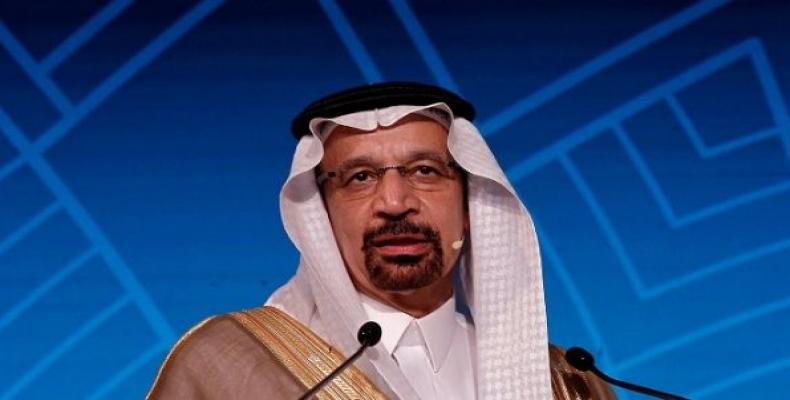New Delhi, November 14 (RHC)-- The Organization of Petroleum Exporting Countries (OPEC) has announced a possible reduction in oil production to balance market prices and world crude inventories.
A sudden increase in crude extraction in the United States and falling prices led the 15 member nations, including Venezuela, to support a reduction in production. Saudi Arabia's Energy Minister Khalid al-Falih said his country will reduce production by as much as 500,000 barrels per day starting in December.
Al-Falih said during the announcement that OPEC and its allies expect to reduce oil supply by as much as 1.2 million barrels a day by 2019 to help prices recover in a context of a slow world economy and decreasing oil demand.
Russia, not an OPEC member but the world’s second highest crude producer (11.4 million bpd), said it preferred a ‘wait and see’ approach. Energy Minister Alexander Novak said: "I would not like to focus on production cuts. I think the most logical thing is to wait for (to see) how the market behaves because stability is our goal."
The U.S. surpassed Russia and Saudi Arabia this year as the international leader in crude production, extracting 11.6 million barrels per day, mainly through fracking shale over the past several years. This has influenced barrel prices, which have tanked over the past two years by as much as 20 percent in the past month alone, reaching around US$60 per barrel.
In its monthly report for December, OPEC anticipated a world oil demand increase of 1.29 million bpd in 2019, a 70,000 bpd drop from November’s forecast. "Technical analysis shows that we need this reduction if nothing changes in the coming weeks," Al-Falih told reporters at the annual Abu Dhabi International Petroleum Exhibition and Conference (ADIPEC).
Russia has said that it will cooperate with whatever decision is made by OPEC nations at the December 6th meeting despite its reservations. "The consensus is that we have to do whatever is necessary to balance the market and if that means cutting supplies by a million, we will do it," assured Energy Minister Novak. "We will do whatever it takes," he added. Saudi energy ministry said he appreciated the cooperation of fellow producers.
Earlier this week, U.S. President Donald Trump tweeted that he was hoping OPEC wouldn’t cut production. He has been pressuring the Saudi government via Tweets since at least July to maintain oil output.
The December OPEC report read that non-OPEC nations are planning to increase production by 2.23 million bpd, that is 120,000 bpd more than previously estimated. According to the organization this will “exceed the expansion in global demand for crude oil."
U.S. sanctions on Iran have also failed to slow down production and export from the OPEC nation.
Venezuelan petroleum minister and president of state-run oil and natural gas company PDVSA, Manuel Quevedo, said they will present the country’s new oil-backed cryptocurrency, the Petro, at the conference which ends on November 15th. He also announced Petro transaction will begin in the “first semester of 2019.”
Manuel Quevedo said: "We will use Petro in OPEC as a solid and reliable currency to market our crude in the world… We are going for growth and economic prosperity of our country giving a hand to the future since the Petro is a currency that is backed by mineral resources."
OPEC to reduce oil output to stabilize world crude prices


